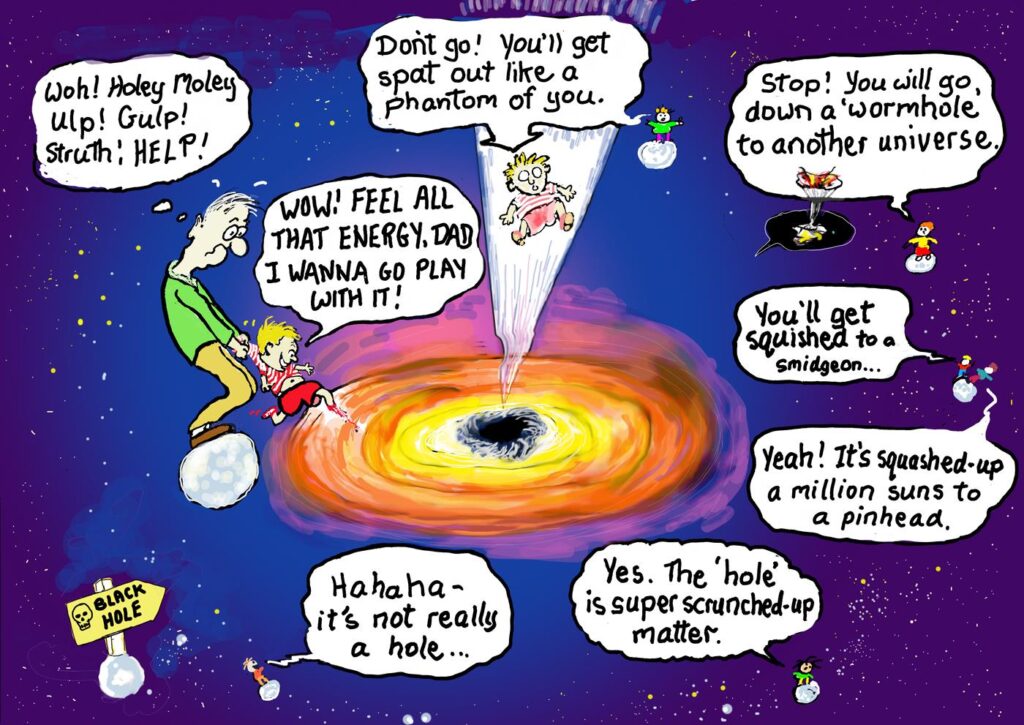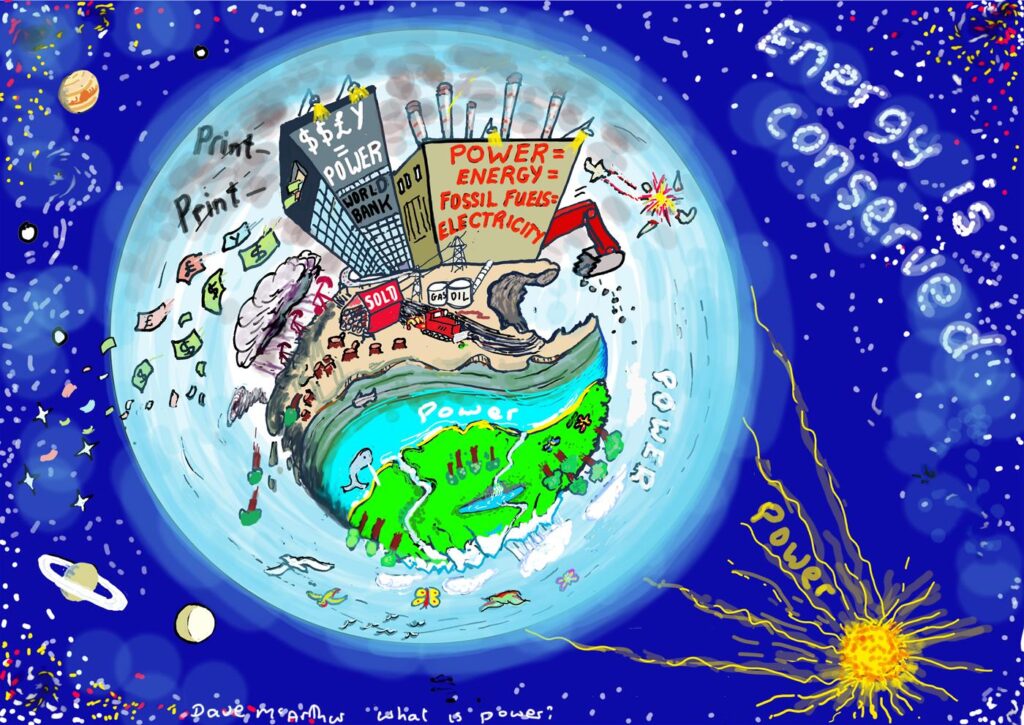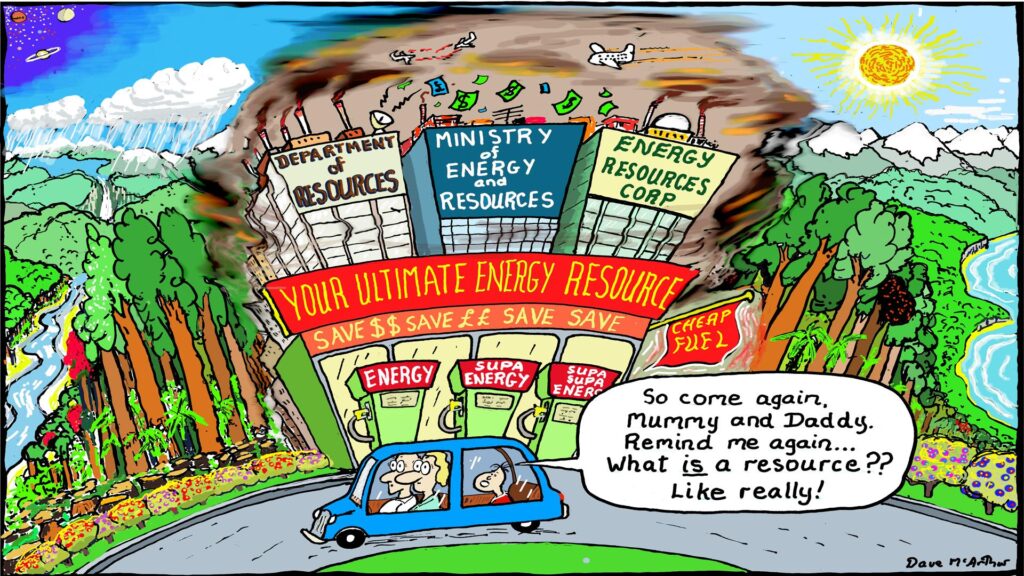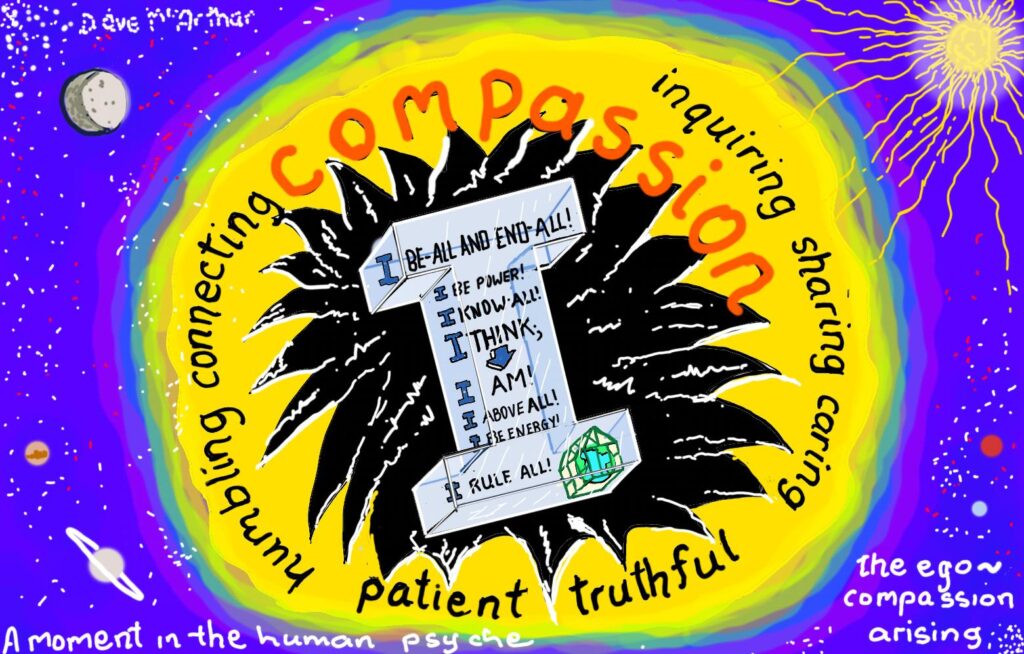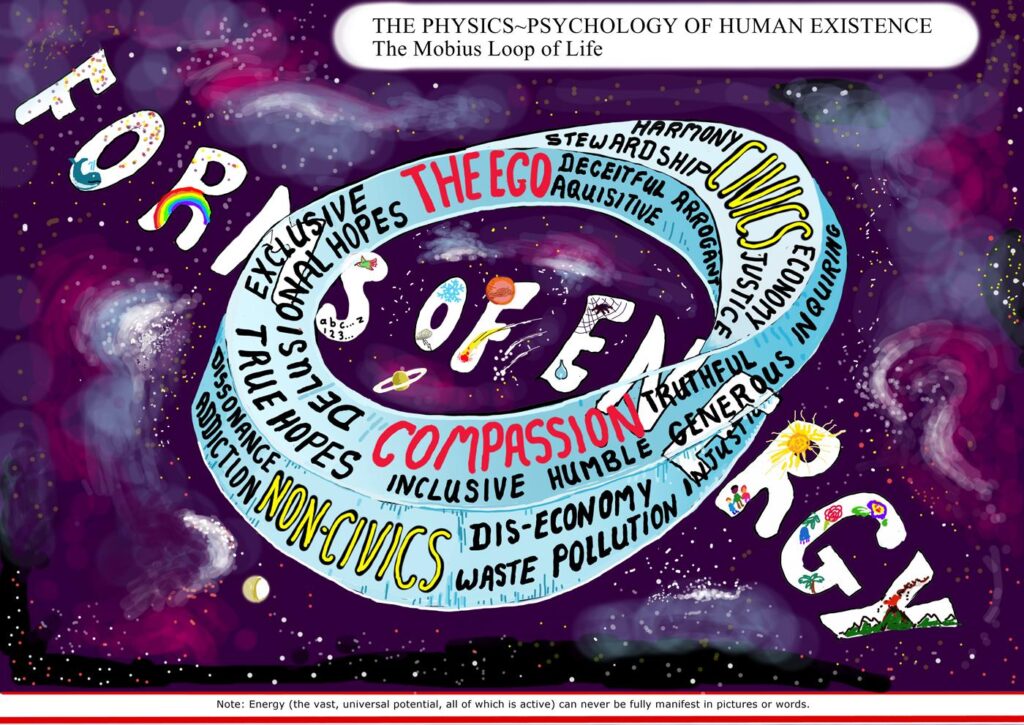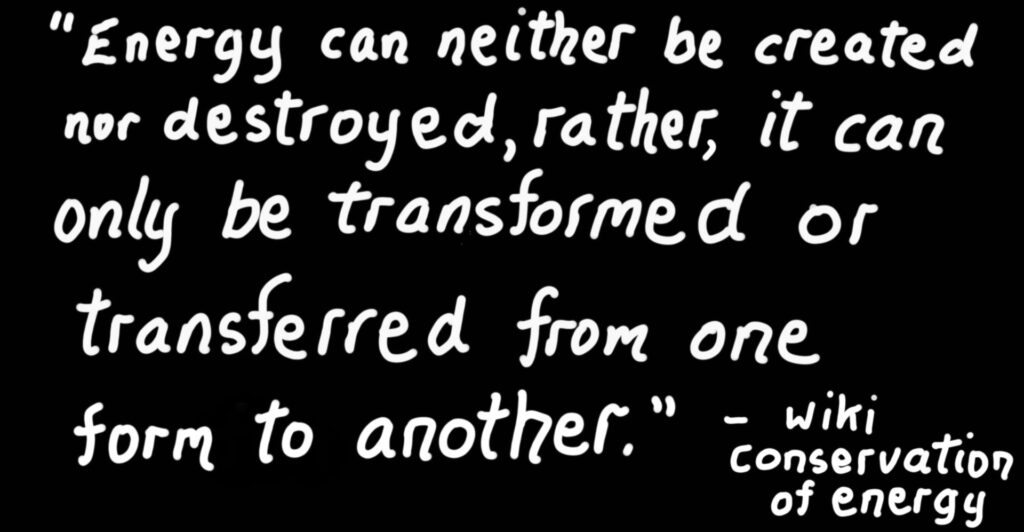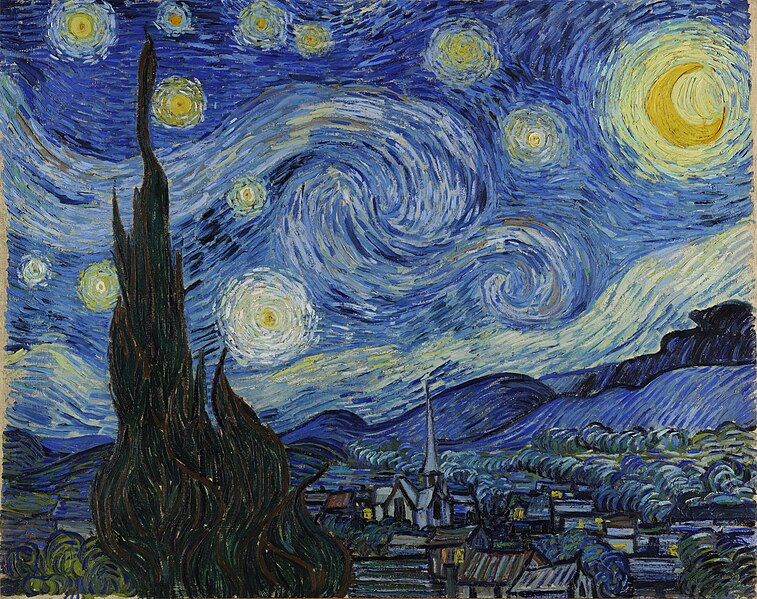“I intentionally chose the word Entropy as similar as possible to the word Energy…
Rudolf Clausius, 1867
The energy of the universe is constant; the entropy of the universe tends to a maximum.”
The question, “What is Entropy?” elicits a multitude of definitions and answers reflecting the beliefs, language and behaviour of almost every major school of thought in the Anglo-world. Most definitions emanate from formations of experts whose lifestyles are extremely delusional and unsustainable by any common measure.
All this confusion and conflict about the meaning of “entropy” is profound evidence supporting the hypothesis that when men (human beings) embrace fatally flawed notions of what energy is, then their lives unravel in division, delusion, depravity and dereliction.
This article suggests we can lessen the risk of this fate by enjoying compassion, searching for simplest, practical notion of “entropy” and ensuring we employ the most transcendent meanings of these words according to the wisdom of the Conservation of Energy Principle.
This search explores our conventional definitions of entropy by unconventional means and concludes with the following statement and cartoon illustrating the role of the human psyche in any definition of entropy:
Compassionate Statement of Entropy.
Ultimately no man can know what entropy is and we best thrive when our actions are truly scientific i.e. our decisions are motivated and illuminated by the qualities of compassion: inclusiveness, inquiry and sharing;
honesty, courage and trust;
humility, forgiveness, patience and generosity of time.
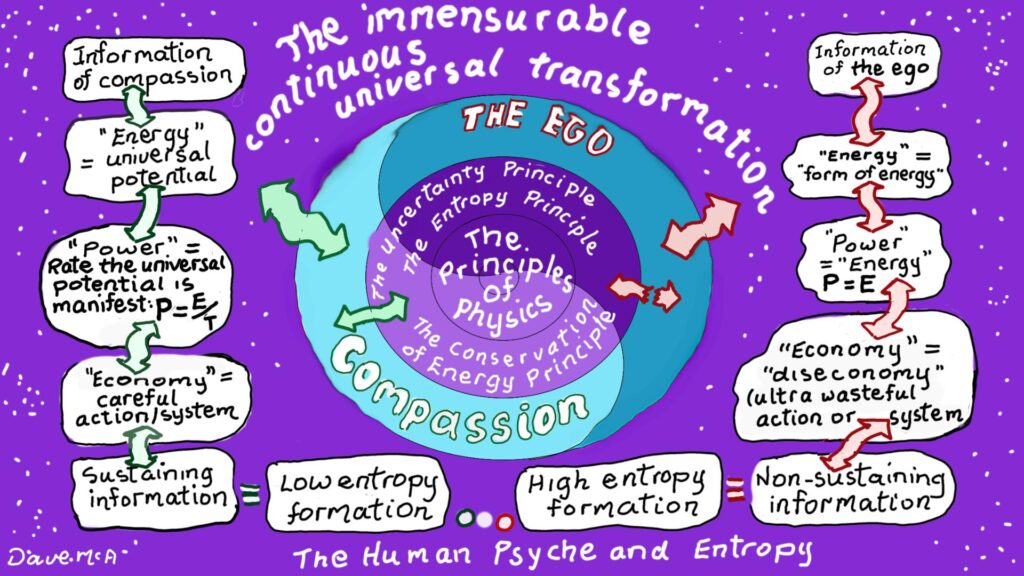
Simple Truths Awaiting Us
(Transcending the complexity of the ego)
One grand, simple, enduring truth of the Conservation of Energy Principle is that energy~~information is a constant i.e. we live the paradox that, for all practical intents and purposes, change is a constant i.e change is unchanging.
Let us be mindful of this as we attempt to traverse the quagmire of The Crown English notion of “entropy”. Here are three quotations to sustain us in the journey of discovery:
“Life is very simple, but we insist on making it complicated”
Often attributed to Confucius
If you can’t explain something to a six year old, you don’t understand it yourself.
Often attributed to Albert Einstein
A child of five could understand this. Send someone to fetch a child of five.
Often attributed to Groucho Marx
Here we an exemplar of entropy of social information. There may well be profound truths about simplicity in these quotations, particularly the capacity of young children to see through the hubris of adults. However none of the attributions are proven true and the more we realize this, the more the truth of the word “simplicity” becomes demeaned, corrupted. atrophied.
In terms of “entrophy“, each iteration of the quotations increased their state of entropy.
Only Groucho Marx can be verified and that is because it is possible to read the actual script of the 1933 classic movie Duck Soup:
“Minister of Finance: Here is the Treasury Department’s report, sir. I hope you’ll find it clear.
Rufus T. Firefly: Clear? Huh! Why a four-year-old child could understand this report! Run out and find me a four-year-old child, I can’t make head or tail of it.”
Source imdb
Something in us may find the original quotation very funny. However we sense Groucho (Rufus) is reflecting something profound and incomprehensible in our human condition. This does not bear thinking about lest we lose our sense of fun.
Perhaps a hint of the source of this barrier lies in the last sentence “I can’t make head or tail of it.” – the “I” being “the ego” in each of us? These are subtle matters best understood with compassion.
The following cartoon is relevant to this quote about the clarity of the Treasury Department report:
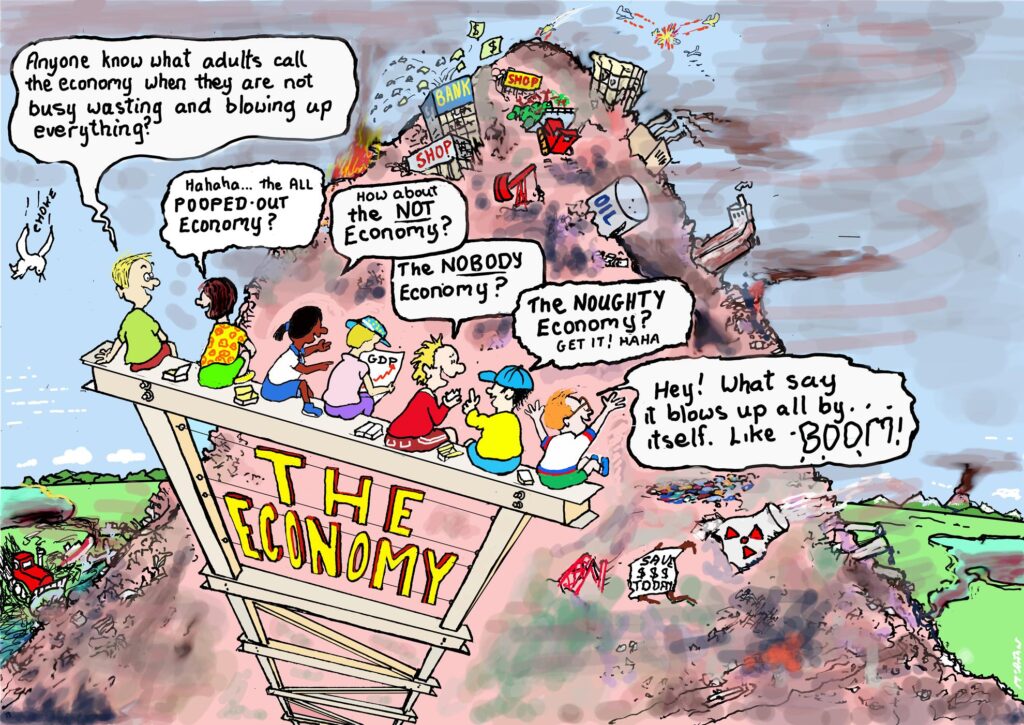
Created for essay asking, What is economy?
The question arises, what simple insight might children provide us if asked to comment on the meaning of following screenshot? Let us proceed with compassion.
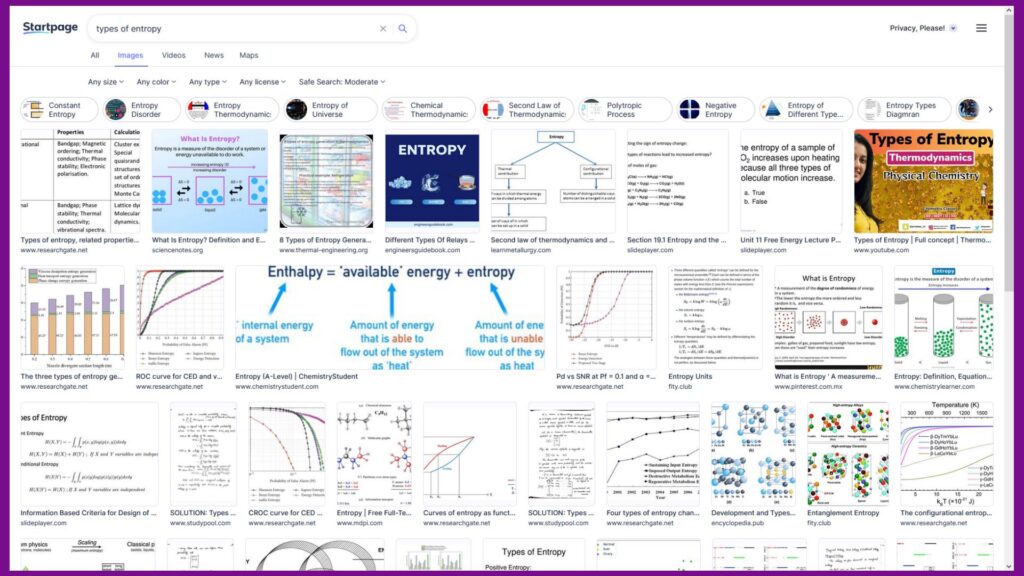
Observe the abundance of abstract mathematical formulations but no practical formulations such as images of exploded mineral oil blasting out the exhaust of a car or jet in the form of lethal pollution or of a broken $2 switch rendering an expensive household device obsolete or of the Space Shuttle Challenger exploding after a small rubber o-ring failed.
Confounding Definitions of “Entropy”
Like me, many people soon feel overwhelmed and numbed when encountering the notion of “entropy”. Indeed our popular English dictionary definitions of “entropy” seem designed to bewilder us and make our brain hurt – especially if we reflect on them and attempt to make good sense of them. For example:
“Entropy is a scientific concept, most commonly associated with states of disorder, randomness, or uncertainty.”
https://en.wikipedia.org/wiki/Entropy#See_also
Entropy (noun)
“thermodynamics : a measure of the unavailable energy in a closed thermodynamic system that is also usually considered to be a measure of the system’s disorder, that is a property of the system’s state, and that varies directly with any reversible change in heat in the system and inversely with the temperature of the system broadly : the degree of disorder or uncertainty in a system”
https://www.merriam-webster.com/dictionary/entropy
“Entropy, the measure of a system’s thermal energy per unit temperature that is unavailable for doing useful work. Because work is obtained from ordered molecular motion, the amount of entropy is also a measure of the molecular disorder, or randomness, of a system. The concept of entropy provides deep insight into the direction of spontaneous change for many everyday phenomena.”
https://www.britannica.com/science/entropy-physics
Brief comment
Most of us graduate from our Crown English education systems inculcated in the belief that “science” is the domain of an intellectual elite of self-styled “scientists” with their own incomprehensible (boring?) language. So we conclude “scientific concepts” are above and beyond the daily realm of life of us “non-scientists”.
Words such as “disorder, randomness, uncertainty” have very different meaning for people depending on their life experiences.
One person’s notion of disorder is “mess” while it means “creativity” to another person.
One person’s notion of a “random incident” is an “accident waiting to happen” according to another person.
Every one experiences a unique balance of the ego and compassion in their psyche and this has a major impact on their sensation of “certainty”.
Perhaps the most potent words in these three popular definitions of entropy are the words “energy” and “work”.
Most of us graduate from our Crown English education system able to quote by rote its definition of energy: “Energy is the capacity for doing work.”
Our Crown English accounting systems are founded in the belief that “Time is Money!”with work being valued according to the degree it generates maximum short-term profits for the merchant bankers of The Crown.
Such a psychopathic governance system is almost certainly an artifact of the ego, reflecting~~generating a culture lacking compassion.
Many of us soon learn to associate the word “work” with our daily feelings of exhaustion and time deprivation. We associate “work” with a sense of meaninglessness, exploitation and inequity. This is particularly true if you are a woman,a child, elderly and give care freely to others.
The Crown’s psychopathic notion of “work” demeans and devalues the vital roles of all these people.
More reflections on this social phenomenon at “What is Energy?”
“Entropy” being defined in terms of “energy”, many of us intuit “entropy” has something to do with hopelessness, deprivation, mess and “running out of energy”.
For many years I have joked, “Well, my work involves reversing the daily entropy generated by about 200 children and a score of teachers so the school is inhabitable again next morning”. Now I wonder what I really was saying in my humorous attempt to cultivate a greater societal status for my derided role as the school cleaner by using this “scientific” term?
Entropy and the Mathematically Challenged
(A note of reassurance)
A great many of us graduate from our Crown English education systems baffled and stupefied by the very sight and sound of the language of Mathematics. Our being glazes over and goes numb at the sight of mathematical equations. However spare yourself the impulse to lie down with a pillow over your head. This article only briefly quotes two sample academic papers to illustrate how confounded the discourse about entropy is. They both contain mathematical equations proving their author’s notion of entropy.
Mathematics involves verbal processes, which means our spoken language impacts our ability to do calculations. It is also involves spatial processes. There is some evidence that the former processes inform our capacity to perform exact calculations while the latter informs our capacity to perform approximations.
Hence some humans have the mathematical capacity to calculate the precise trajectory of a missile out in deep space and to invent nuclear bombs. However mathematics being an abstract language and way of thinking, its information does not necessarily inform their lifestyle in sustainable ways.
Our thought process forms a fertile realm for the ego to generate ingenious self-deceits and delusions about the universal reality.
The following two samples of academic papers are peripheral to the central intent of this article, which is to provide practical insight into the nature of “entropy” so it informs our daily lives in wisdom.
Sample One
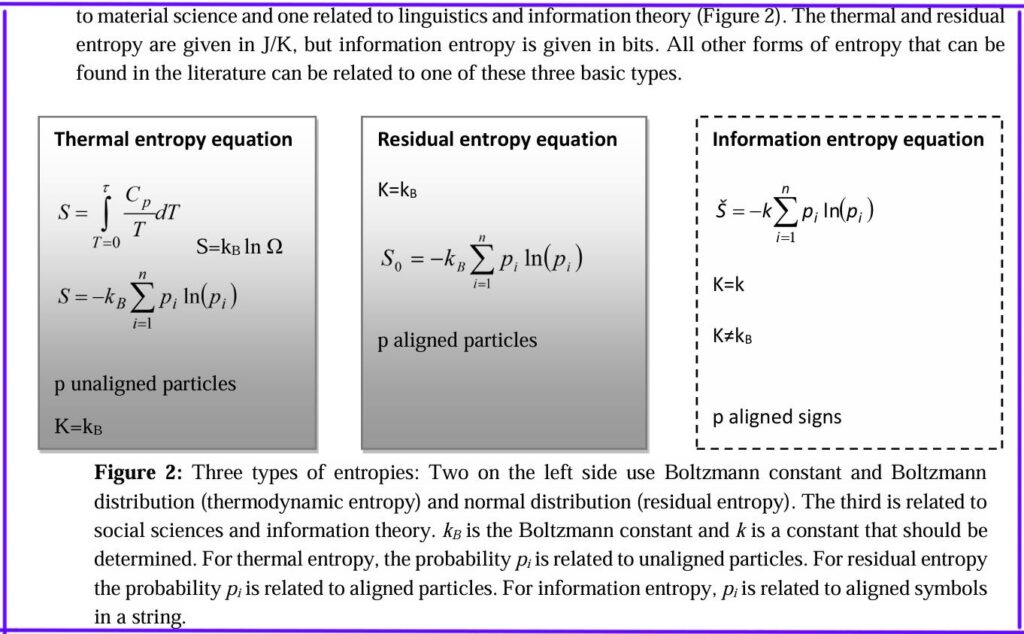
Researchers in an Entropy Wonderland: A Review of the Entropy Concept
Marko Popovic https://arxiv.org › pdf › 1711.07326
Clip from the introduction to the PDF:
“Key words: Thermal entropy; Shannon entropy; Residual entropy; Total entropy; Negentropy.
- Introduction
Entropy concept is frequently used in many scientific disciplines: physics [1-70], equilibrium and non-equilibrium thermodynamics [1-25, 60-70], statistical mechanics [89,91,95], cosmology [50-59], life sciences [42-46, 86], chemistry and biochemistry [60-67], geosciences [85], linguistics [84], social sciences [83], and information theory [41,69,74, 88].
Before we proceed to review the entropy concept, it should be stressed that the concept is often used, misused and even abused in the literature [30, 79-82, 108]. The widespread use of entropy in many disciplines lead to many contradictions and misconceptions involving entropy, [80,81].“
Note : sincere thanks to Marko Popovic at the Department of Chemistry and Biochemistry, Brigham Young University, Provo, UT 84602. The Rudolf Clausius and von Neumann quotes are both sourced from this thoughtful paper.
“Whoever uses the term ‘entropy’ in a discussion always wins since no one knows what
John von Neumann (1903 – 1957) Polymath
entropy really is, so in a debate one always has the advantage”
Sample Two
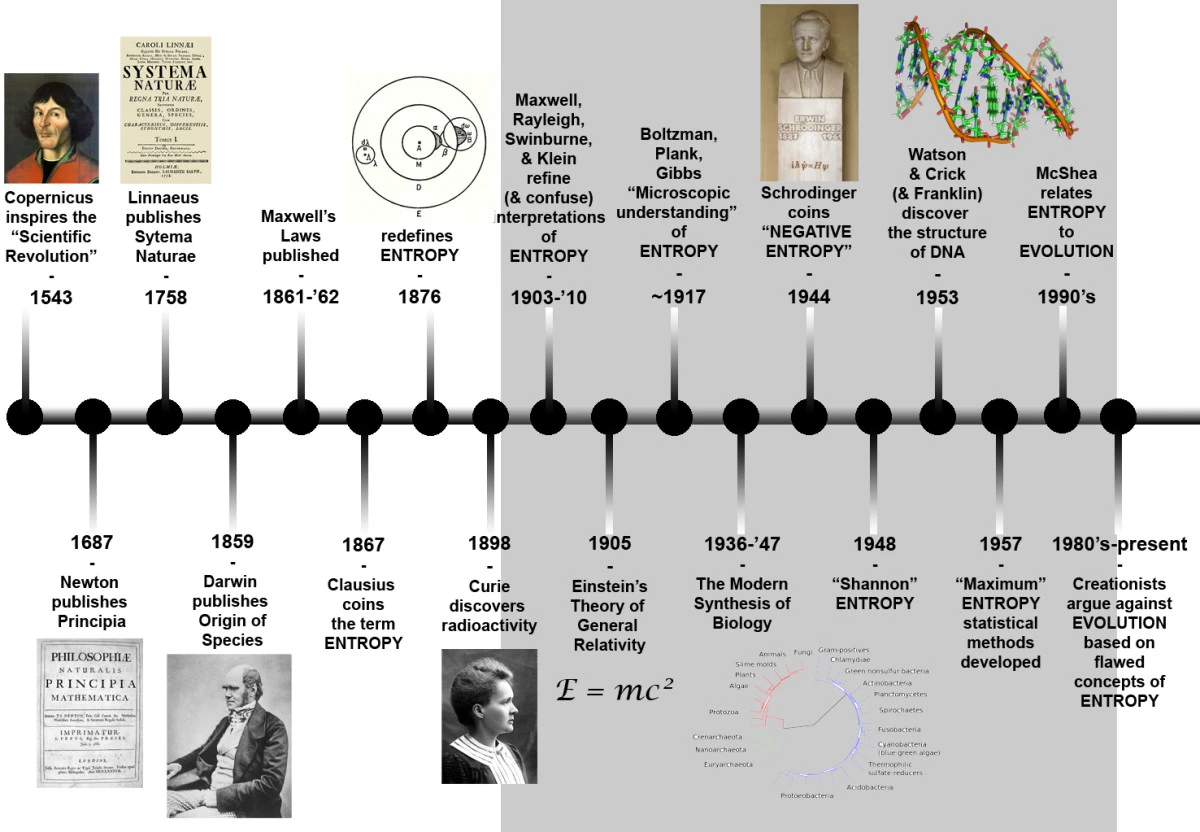
by Joshua S Martin, N Adam Smith & Clinton D Francis in paper titled
Removing the entropy from the definition of entropy: clarifying the relationship between evolution, entropy, and the second law of thermodynamics
The abstract of their paper reads:
“Misinterpretations of entropy and conflation with additional misunderstandings of the second law of thermodynamics are ubiquitous among scientists and non-scientists alike and have been used by creationists as the basis of unfounded arguments against evolutionary theory. Entropy is not disorder or chaos or complexity or progress towards those states. Entropy is a metric, a measure of the number of different ways that a set of objects can be arranged. Herein, we review the history of the concept of entropy from its conception by Clausius in 1867 to its more recent application to macroevolutionary theory.”
Note : Sincere thanks to the authors of this paper for illustrating the range of schools of thought about entropy and for acknowledging the common confusion. It is noteworthy that the chart is very West Eurocentric, frames out pre-16th Century history and excludes the great, ancient, enduring civilizations around the planet.
And there are more of those mysterious maths equations again that flummox those like me who are not fluent in the language of mathematics.
Both papers allude to stuff called “Negentropy” or “Negative Entropy” (a notion popularized by Erwin Schrödinger , who also spoke of “free energy”). Such words are even more baffling for those of us living in our perversely dualistic Crown English culture in which:
- a vast diseconomy is called “The Economy”;
- “global warming” and “climate change” are deemed malignant processes;
- there is stuff called “Alternative Energy”, “Sustainable Energy” and “Renewable Energy”;
- “Economists” and accountants measure warfare and waste as sign of a healthy GNP;
- merchant bankers profit from trading “negawatts” alias their waste and pollution;
- “conspiracy ” is associated with negativity and evil;
and many other prime English words and phrases have had their meaning inverted this past three centuries. See A Word in History at a Glance
The above screenshot of the Internet search asking “types of entropy” also includes a reference to stuff called “enthalpy“, as in the equation: Enthalpy = “available” energy + entropy.
This adds a whole new dimension of complexity and confusion for many of us even if the mathematical equations involved may have practical value in our lives.
The Crown dialect of English already has us conflate and confuse “warming” with “warming-up“, thereby having us deny the change of state that occurs when temperatures rise. What might the Greek word enthalpein (“to warm in”) mean in this confused context? See its etymology:
“1927 in physics, from Greek enthalpein “to warm in,” from en “in” (see en- (2)) + thalpein “to heat,” from thalpos “warmth, heat,” especially “summer heat.”
Online Etymology
A Classic Case study of Multiple Negation
The Crown dialect of English being a very dualistic, “black and/or white” language, it tends to inform us somewhat like a computer language: 01010101. It traps us in paradox and has us speak of “positive and/or negative”, “friend and/or foe”, “dark and/or light”, “in and/or out”, “on and/or off”. Its a dialect that, in general, lacks the power to transcend paradox so we can speak in a holistic way.
This tends to reflect~~generate brain structures and behaviour that are divisive, confusing, conflicting and dueling. Such processes are typical of the exclusive force in our psyche: the ego.
Our brains process the subject of a sentence before the negation so that it is more helpful to say “Walk with care” rather than “Don’t trip! ”. We tend to envisage ourselves tripping over before we try to envisage ourselves not falling over. The message of “trip! ” is moderated rather than inverted and we are more likely to become confused and trip over.
A classic example of this unhelpful cognitive process is recorded at:
https://en.wikipedia.org/wiki/2013_New_Zealand_asset_sales_referendum
“Do you support the Government selling up to 49% of Meridian Energy, Mighty River Power, Genesis Power, Solid Energy and Air New Zealand?”
In brief, the first three corporations are State-owned “Electricity/Power/Energy” companies vital to New Zealand’s successful transition away from combusting mineral biomass.
By contrast, Solid Energy (the State coal mining department) and Air New Zealand (a massive polluter) are inherently unsustainable operations.
The NZ Green Party leader proposed a national referendum asking the relatively straight forward, positive question:
“Do you support the Government retaining 100% ownership of Meridian Energy, Mighty River Power and Genesis Energy”?
The NZ Combined Trade Union president, on behalf of the Engineers Union, insisted that Air New Zealand be included in the referendum and so it was.
The NZ Labour Party parliamentarians claimed they knew a lot about communication and stated that when the population is feeling positive, then frame the referendum question in a positive way whereas when it is feeling negative, then frame the question in a negative way so supporters of the status quo have to say “No” .
The outcome of the referendum was a majority of voters said “No”, many citizens could not understand the question and did not vote while the leader of the NZ National Party was able to argue that the people had voted for the sale of 49% of the “Electricity” Corporations.
Note: Genesis Power had invested millions of dollars branding itself as “Genesis Energy” since it inception in 1999, including partnering with the Royal Society of New Zealand – The Crown’s agency charged with maintaining “high standards of science” in New Zealand.
This confusion of corporation names doubly confounded the referendum because it also conflated “energy” with “power”, thereby completely negating the principles of physics.
These are subtle matters of the human condition best understood with compassion.
Without compassion, the ego can make any of us our own worst enemy. This negation on negation on negation is typical of an ego-derived culture. The deceits and delusions of the ego flourish in this realm of inward spiraling thoughts.
We are our language and the referendum wording reveals inconvenient truths about its proponents.
For instance, for decades the leadership of the NZ Labour Party had actually facilitated and supported the privatization legislation (which the NZ National Party enacted) while informing its members it opposed the sales.
Similarly, for decades the leadership of the NZ Green Party had actively promoted the confusing, unscientific language enabling the sale in its party ranks and our communities. Hence its leaders had no language to articulate the vital role of our electrical grids in using our national solar-electrical potential so it sustains us.
Maybe you had to be present at the meeting to appreciate how, without compassion, the ego can corrupt our finest intentions.
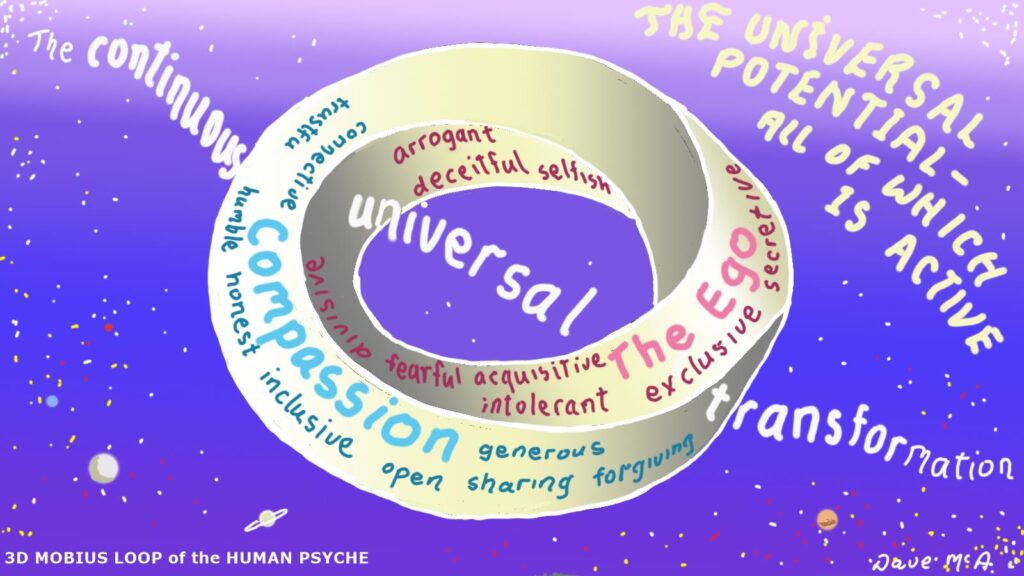
We each exist as a dynamic, finite balance of the exclusive force (the ego) and the inclusive force (compassion).
We soon cease to exist if we lack sufficient compassion and the ego becomes dominant in our psyche, language and institutions
The Crown New Zealand referendum forms a potent reminder of our psychology~~physics.
Without compassion, we adopt narrow, delusional uses of the word “energy” and this in turn informs all our associated formulations such as “power“, “entropy”, “enthalpy” and “negentropy” so they too trap us in negation and denial of the principles of physics.
These confused formulations generate an unsustainable culture in which we define energy as the ability to do “work”, equate it with a few forms of energy and speak of “potential energy” versus “kinetic energy” i.e. we believe not all the universal potential is active.
We associate “energy efficiency” with “high cost”, “non-economy” and “deprivation”.
We equate high entropy with “unavailable energy”, “low energy”, “uselessness” and “disorder” (low, even zero levels of order) and while equating low entropy with high order, great usefulness and “high energy”. At the same time we sense there are sustaining forces enabling our existence and speak of stuff called“free energy” i.e. stuff we can use at our whim. We even define entropy as a measure in terms of “high and low negative energy”
All this negation of negation of negation again is typical the ingenious deceits and self trickery of the ego.
Transcending our Human Condition
(Enjoying true hope of physics)
We are our language and our use of a symbol (including a word) sustains us according to the relative degree it denies~~embraces the principles of physics. This website employs this wisdom to evaluate the sustainability of a word use so we can better transcend our condition. One practice is to explore the etymology of a word and see how its meaning changes with behaviour over millennia. See, for instance, a word in history at a glance.
So a first step is to give time to checking out a source such as the Online Etymology Dictionary
entropy(n.)
https://www.etymonline.com/search?q=entropy
1868, from German Entropie “measure of the disorder of a system,” coined 1865 (on analogy of Energie) by German physicist Rudolph Clausius (1822-1888), in his work on the laws of thermodynamics, from Greek entropia “a turning toward,” from en “in” (see en- (2)) + tropē “a turning, a transformation” (from PIE root *trep- “to turn”). The notion is supposed to be “transformation contents.” Related: Entropic.
The Etymonline Dictionary elaborates on this etymology with the following quote;
Martin J. Klein, “The Scientific Style of Josiah Willard Gibbs,”
It was not until 1865 that Clausius invented the word entropy as a suitable name for what he had been calling “the transformational content of the body.” The new word made it possible to state the second law in the brief but portentous form: “The entropy of the universe tends toward a maximum,” but Clausius did not view entropy as the basic concept for understanding that law. He preferred to express the physical meaning of the second law in terms of the concept of disgregation, another word that he coined, a concept that never became part of the accepted structure of thermodynamics.
in “A Century of Mathematics in America,” 1989
Brief comment:
It is probable that much of the holistic meaning of the German word “energie” was lost in translation into The Crown dialect of English. It seems even more probable that Clausius’s concerns and caveats about the use of the German word “entropie“were lost in translation.
In terms of human behaviour, both the German and English notions of “energy” were ego-derived and lacking compassion, Crown English more so than German. Both formulations reflect dualistic, duelistic* languages and cultures.
*The word “duel” arises from Latin duellum meaning “war” and this reflects the reality of their flawed, ego-derived notions of “energy” – ever since the 1870s, both the Anglo and German empires have been in a constant state of “energy crisis” and engaged in constant “energy wars” against each other; wars against countries with “energy resources ” (their delusional term for mineral biomass); and wars against Earth’s ecosystem .
Information is physical and we are our language. Words matter and are matter.
.
Transcendent Notions of Entropy
(Simple truths)
The meaning of “energy” and the meaning of “information” are inextricably intertwined to the deepest level – we cannot talk about one without talking about the other.
Formulation informed by this website’s formation
Neuroscientists, astrophysicists, quantum theorists, computer scientists, data engineers and other specialists tangle with the relationship between energy and information For example, they ask, “Is information is more fundamental to energy or is energy more fundamental to information?“
The reality of psychology~~physics is that “energy” and “information” are paradoxically fundamental to each other.
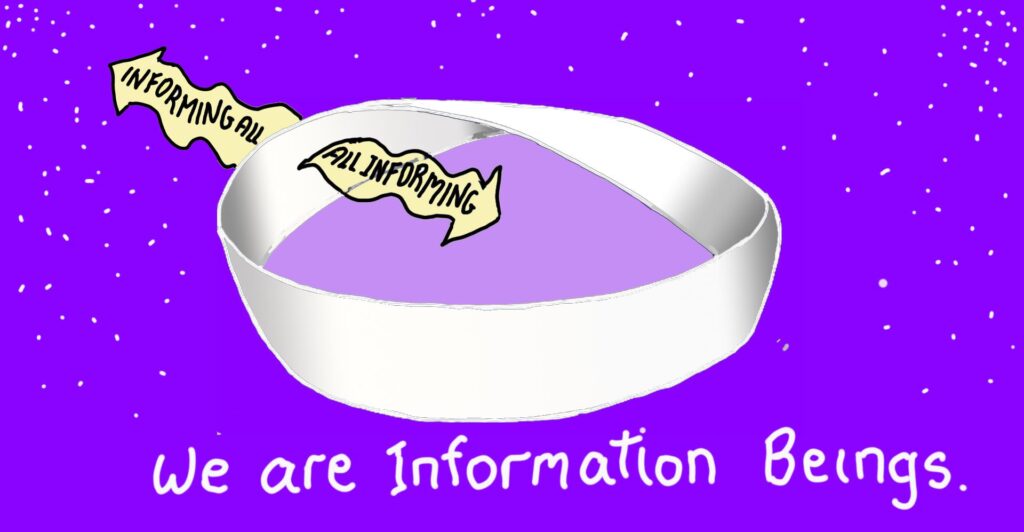
Our human condition is such is every man (human being) experiences both “energy” and “information” in most vital way with every iota of their being and yet no man can truly know what they are.
We can however know both “energy” and “information” are universal phenomenon and subject to the principles of physics, which remind us we each form a finite, mortal, moral being existing as a unique dynamic balance of forces amidst the continuous universal change.
We exist in this human formation to the extent all elements of our being are informed in relatively harmony with the ways of the universe, that is the principles of physics.

The cartoon illustrates how the ego informs us in denial of these enduring principles and thus energy (the universal potential) informs us in non-sustaining, delusional ways whereas compassion informs us in truth and harmony with all.
Entropy is our measure in any moment of self-awareness of the relative sustainability of our human formation.
Our “human formation”
( Quick reflection on defining oneself )
There are countless ways of defining our “human formation”or “oneself”, most of them indescribable in words. Of course, the ego would have us believe otherwise for it thrives in the domain of thoughts. However compassion can communicate in wordless ways and has been described as an active, caring state of being that the blind can see and the deaf can hear.
For some people, their life is the instant gratification of the exclusive dictates and demands of the ego. Existence involves a very narrow perception of oneself, this being manifest in thoughts and actions motivated with the principal imperative: the survival of the ego.
A paradox of our psychology~~physics is that this informs their human formation in such an obsession with death that they become alienated from all and experience “no time” in the moment.
They may be able to calculate the total energy of the vast universe and the probability that it will”run out of steam” some distant day and cease to be. However without compassion, this information of entropy only serves to inform them in a sense of waste and nihilism.
For others who enjoy a greater degree of compassion, their notion of our “human formation” or “oneself” is far more universal. Their notion of our human formation involves a more inclusive (holistic) perception of oneself, this being manifest in thoughts and actions motivated by the principal imperative of ensuring their lifestyle minimizes suffering and sustains Mankind for many generations to come.
The paradox is that, while this informs them in the common suffering of all, it also informs their human formation in greater connection and experience of “timelessness” in the moment.
They experience greater generosity of time in the moment so they are more empowered with energy, namely the continuous universal transformation.
They live entropy in the daily decisions they make.
It matters little to the compassionate person how, when or if the universe began or will end. They are more devoted to being truly scientific and ensuring their daily decisions are in harmony with the ways of the universe (reality). This accordance informs them in sustaining meaning and true hope of physics, better enabling them to transcend life and thus death.
Every man (human being) forms a dynamic formation of these two archetypes of people.
A Simple Compassionate Statement about Entropy
(Its all about being a caring, civil citizen)
The reality is all men are mortal, moral beings. We exist amidst the vast, continuous, universal transformation as paradoxical, finite balances of information according to the principles of energy. Hence we experience entropy with every decision, with every action of our lives. Our compassion reminds us that change is a constant and we can never truly know whether its for good or for bad, whether it forms waste or it forms treasure.
This said, we can be informed by and live in trust of the great truths, the wonderful wisdom of the universal principles. And this wisdom resides in our every atom, molecule and cell of our body as well as our ancestors, children and all other sentient beings
This reality means entropy is not about abstract knowledge and clever calculation , rather it is about opening ourselves to that wisdom and living each moment with care.
Ultimately no man can know what entropy is and we best thrive when our actions are truly scientific i.e. our decisions are motivated and illuminated by the qualities of compassion: inclusiveness, inquiry and sharing; honesty, courage and trust; humility, forgiveness, patience and generosity of time.
Compassionate Statement of Entropy.
To humbly remind us again of the context of our human formation:

These both arise simultaneously in any of our moments of self-awareness with the ego reflecting~~generating this division and fracturing of our greater consciousness. It exists in each of us as reactionary force, inherently having us live in fear and denial of the principles of physics with all their reminders of our moral roles and mortality.
It is our experience of compassion that enables us to transcend this paradoxical formation and remind us in the great, enduring wisdom of the principles of physics. In particular, we embrace the reality that energy is the universal potential, all of which is active.
With compassion, the Conservation of Energy Principle reminds us in a spirit of honesty, inquiry and wonder that energy is information continuously informing, transforming the countless, myriad possible forms of energy.
With compassion, the Uncertainty Principle of Energy reminds us in humility and awe that we each exist as a trace probability amidst vast, incalculable possibilities.
With compassion, the Entropy Principle of Energy animates the scientific spirit in each of us so we are better enabled to experience the generous sense of time, patience and inclusiveness ( holism ) required for our actions~~language to be informed in harmony with the ways of the universe.
In practical terms of our daily lives, we give care to conserving the transcendent power of our words (symbols) so they are in accord with the principles of physics. Paradoxically this compassionate practice enables the universal potential to become manifest in our own life in ways that sustain Mankind for many generations to come.
Our notions of energy, power, economy, transformation and entropy inform each other in profound ways and frame our world view.
Ko taku reo taku ohooho, ko taku reo taku mapihi mauria
https://www.maori.cl/Proverbs.htm
My language is my awakening, my language is the window to my soul
This is a proverb closely associated with language revitalization,
a struggle which is very important in maintaining culture.
Takeaway
We are information beings. This means we are our language and our actions speak the truth of our lives in ways words can never.
The Crown dialect of English, (the “global language of business”) being fundamentally an artifact of the ego, it lacks proverbs reminding us in the truths of the principles of energy~~information.
For instance, it confuses and conflates “energy” in exclusive way with a few “forms of energy” , thereby generating delusional language and behaviour on scale. Hence our use of words like entropy, power, change, science. physics and economy tend to lack wisdom and act to destroy us.
My ancestors were the Scottish, Irish and English peoples of the British Isles. Their wise proverbs are lost to me. Fortunately I am born here in the land of the Maori people and their proverbs still resonate with wisdom of the indigenous cultures. Certainly their notions and practice of kaitiakitanga resonate with the profound and sacred in me in ways that our Crown English notions of guardianship, stewardship and economy never can.
Whatungarongaro te tangata toitū te whenua
https://www.maori.cl/Proverbs.htm
As man disappears from sight, the land remains
This demonstrates the holistic values of the Maori,
and the utmost respect of Papatuanuku, the mother of the earth.
LEGEND explaining cartoons
We are information beings, existing as dynamic balances of information and we live the following fundamental conundrum of our human condition:
We exist as unique, finite formations amidst the continuous, universal transformation, paradoxically informing all even as we are informed by all. And this continuous transformation (change) is a universal constant i.e. unchanging.
All forms are of energy; no form is energy.
Every man (human energy) is vitally sentient of energy; no man can truly know what energy is.
“Energy” and “power” are inextricably interconnected and understanding their complementary relationship is critical to our survival.
Energy being the universal potential, the most transcendent definition of the word “power” is this:
Power is our measure of the rate the universal potential is manifest and the great variable is our sense of time in the equation.
We are our language and we live the paradox of information: our use of a symbol simultaneously reflects and generates our state of being.
We are sustained according the degree our use of a symbol is in harmony with the principles of physics – we perish if our actions (our language~~behaviour) are in denial of and dissonant with the ways of the universe

